Hydration tips for seniors require an overview of the need for hydration in elderly people. Hydration is a fundamental aspect of health at any age, but it becomes even more critical for seniors. As we age, our body’s ability to conserve water diminishes, and the sense of thirst may not be as sharp as it once was. This natural decline can lead to a reduced consumption of fluids, increasing the risk of dehydration, which in seniors, can precipitate more severe health complications than in younger individuals.
Unique to older adults is the impact of socio-economic factors on hydration. Research suggests that seniors with limited mobility, fewer social interactions, or those living in care facilities might experience greater challenges in maintaining hydration due to reliance on caregivers for fluid intake. Moreover, cognitive decline can affect a senior’s ability to remember or even understand the need for regular water consumption. These factors are seldom highlighted in typical discussions on senior health, yet they play a crucial role in the hydration strategies tailored for this demographic.
Understanding these unique challenges is essential for developing effective hydration tips for seniors and practices that cater specifically to the needs of the elderly, ensuring their hydration is managed proactively and thoughtfully. So let’s dive deep into our blog and see the best hydration tips for seniors.
Recognizing Dehydration: Signs and Symptoms
Identifying dehydration in seniors can be tricky, as the typical symptoms may manifest differently or be less noticeable. Our hydration tips for seniors will begin with identifying dehydration. Here are some unique signs to watch for, which are often overlooked:
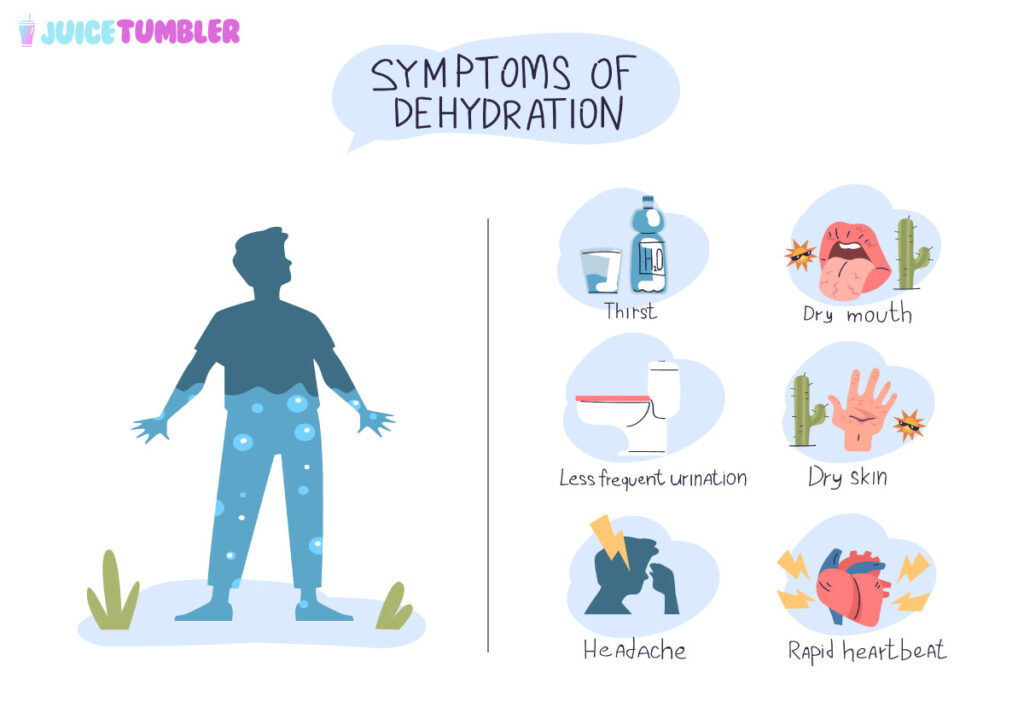
- Subtle Mood Changes: Changes in mood, such as increased irritability or confusion, can sometimes be the first sign of dehydration in seniors rather than the more commonly cited symptom of thirst.
- Decreased Skin Elasticity: While this test is common, it’s crucial to understand its limitations with seniors whose skin elasticity naturally decreases with age. A delayed return to normal isn’t as reliable an indicator in older adults.
- Urine Color and Frequency: Often underemphasized is the importance of monitoring not just the color but also the frequency of urination. A decrease in frequency, regardless of fluid intake, warrants attention.
- Dry or Sticky Mouth: Beyond the common dry mouth, look for signs like a sticky or tacky feel to the mouth and throat, which can indicate dehydration before thirst is felt.
- Fatigue or Lethargy: Unexplained tiredness or a sudden drop in stamina could be a dehydration signal, especially if it doesn’t coincide with recent physical activity or disrupted sleep patterns.
These symptoms require careful monitoring as they might not be as pronounced and can be mistakenly attributed to other aging-related health issues. Recognizing these signs early can be key to preventing severe dehydration and its complications.
Hydration Tips for Seniors to Maintain Water Intake
Determining the exact amount of water necessary for older adults to stay hydrated can be nuanced, as it varies based on individual health conditions, activity levels, and even climate. However, a general guideline often overlooked in the discussion is the role of personalized hydration strategies:
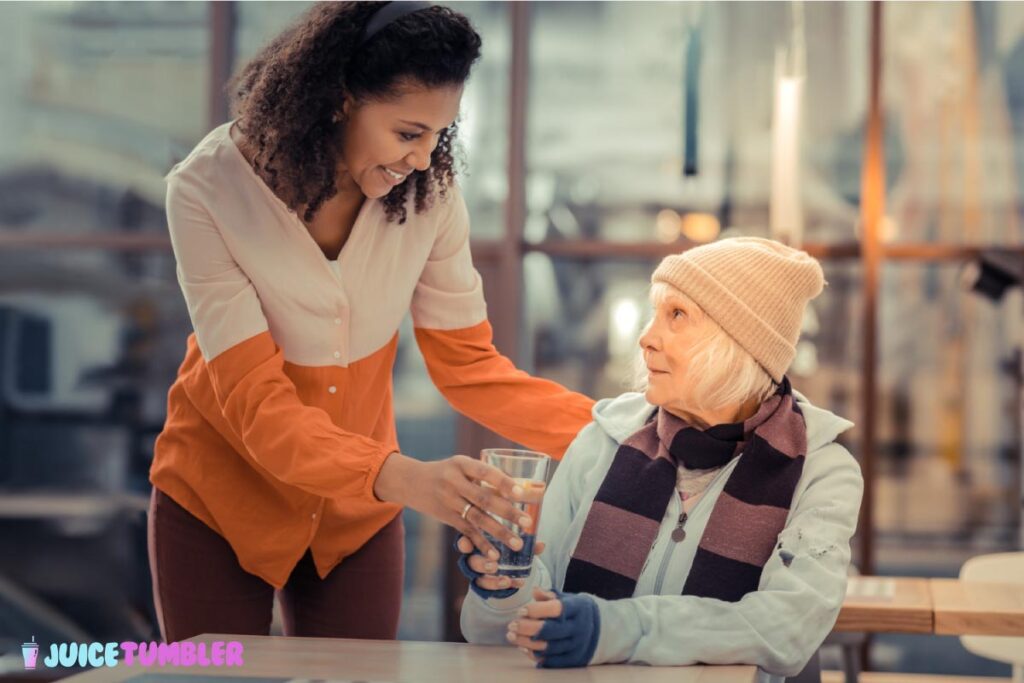
- Personal Health Factors: Adjust water intake based on personal health factors such as body weight, kidney function, and any medications that impact fluid balance. Regular discussions with healthcare providers can refine these recommendations.
- Listen to the Body: Encourage seniors to be attuned to their body’s signals. Educating them about different hydration cues, beyond just thirst, can help them better manage their water intake.
- Daily Fluid Intake Guidelines: As a starting point, a general recommendation is about 1.7 liters (about 7 cups) per day for older women and 2 liters (about 8 cups) per day for older men, but this should be tailored based on individual needs and medical advice.
Best Hydration Practices for Older Adults
Ensuring adequate hydration tips for seniors involves more than just reminding them to drink water. Here are some best practices that are especially beneficial for older adults and are often overlooked in general hydration advice:
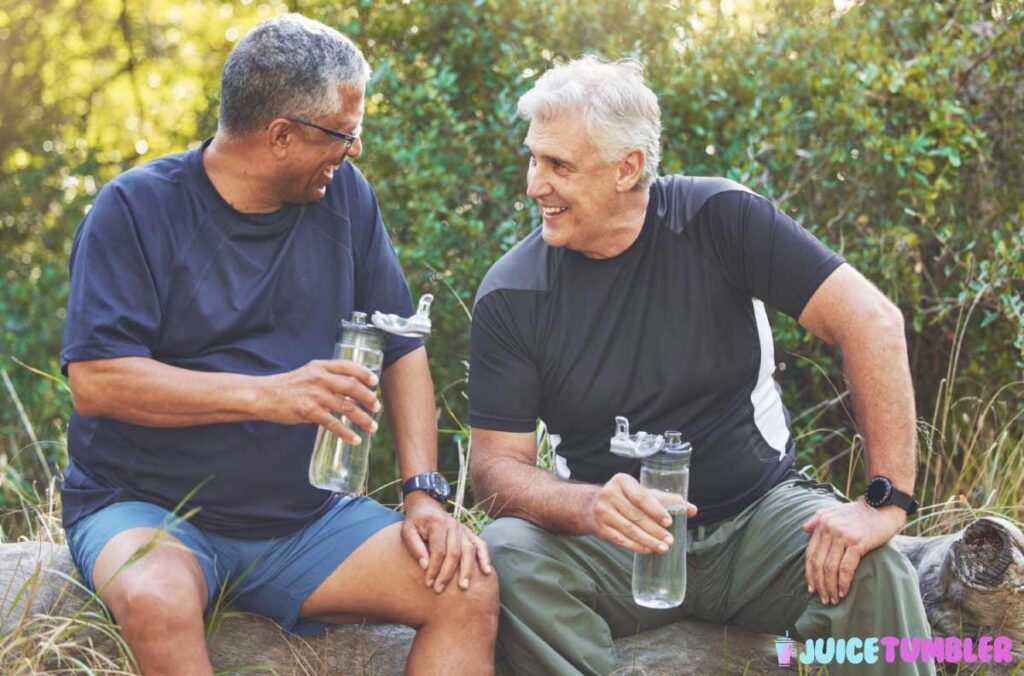
- Structured Drinking Schedule: Establish a regular drinking schedule that aligns with the senior’s daily routine. This helps in maintaining consistent fluid intake without relying solely on the feeling of thirst.
- Optimal Fluid Temperature: Seniors often have a diminished ability to perceive temperature. Serving beverages at a moderate temperature can prevent burns and make fluid intake more pleasant and regular.
- Variety of Fluids: Encourage hydration with a variety of fluids. Broths, herbal teas, and flavored waters can provide a pleasant change from plain water and stimulate fluid intake.
- Involve Family and Caregivers: Make hydration a shared responsibility. Educate family members and caregivers about the importance of regular fluid intake and how they can help maintain hydration levels.
- Regularly Update Hydration Equipment: Ensure that the drinking vessels are senior-friendly—easy to hold, open, and sip from. This might mean updating old tumblers or cups with ones that are specifically designed for ease of use in older adults.
Implementing hydration tips for seniors can significantly aid in maintaining adequate hydration, which is crucial for the health and well-being of seniors.
Overcoming Challenges: Hydration Tips for Seniors with Health Conditions
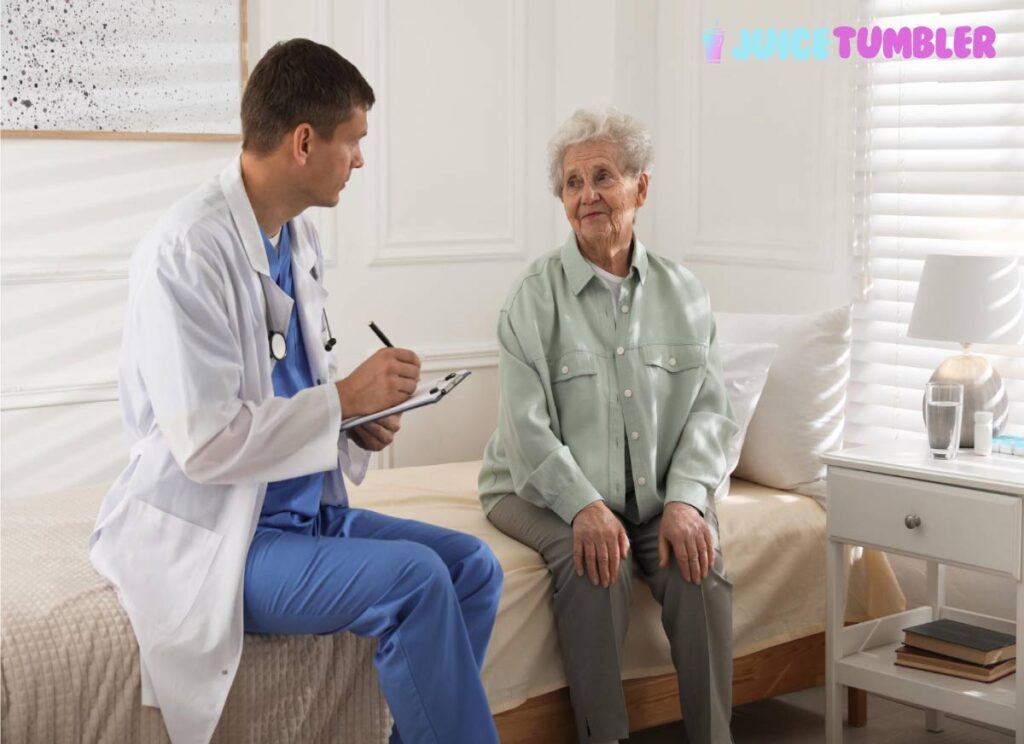
Hydration tips for seniors with specific health conditions present unique challenges requiring tailored strategies. Here are some considerations that are often overlooked but critical:
- Customized Fluid Intake for Kidney Health: Hydration tips for seniors with kidney issues, fluid intake must be carefully managed. Consulting with healthcare providers to tailor the amount that supports kidney health without overburdening them is crucial.
- Hydration for Diabetics: Maintaining hydration helps manage blood glucose levels. However, choosing the right beverages or fruit juice that don’t spike sugar levels is essential—opt for sugar-free and low-calorie options.
- Heart Health and Fluid Regulation: Hydration tips for seniors with heart conditions need to balance fluid intake to avoid stressing the heart. Monitoring and adjusting fluid intake based on their current health status and under medical advice is vital.
Implementing these specific strategies helps manage hydration effectively while considering the overall health and safety of seniors with chronic conditions.
Conclusion: Empowering Seniors to Stay Hydrated
Ensuring that seniors remain hydrated is more than a matter of health; it’s a significant factor in maintaining their independence, vitality, and quality of life. Empowering seniors to stay hydrated involves both awareness and practical measures:
- Promote the Concept of Hydration as Medication: Frame hydration as a non-negotiable part of the daily routine, akin to taking medication. This perspective can help seniors prioritize it with the seriousness it deserves.
- Incorporate Hydration into Social Activities: Utilize social gatherings as an opportunity to promote hydration. Whether it’s a tea time with friends or a family dinner, making hydration part of the event can improve intake.
- Regular Consultations: Encourage regular consultations with healthcare providers to discuss hydration strategies that align with their overall health plans. This personalized approach ensures that hydration advice complements their medical needs and lifestyle.
By adopting these strategies, we address seniors’ physical needs and enhance their social and emotional well-being, making hydration a cornerstone of healthy aging.

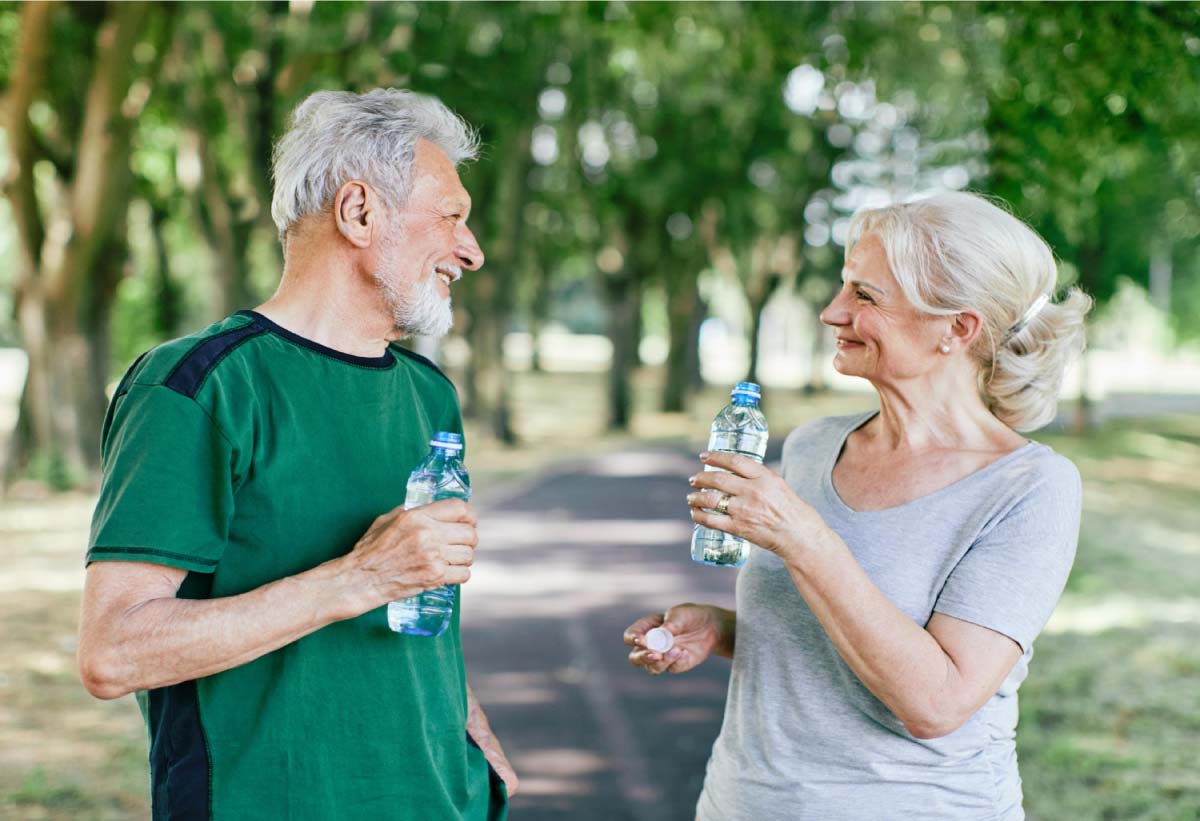
[…] or a newcomer to the trend, understanding these aspects will help you make the best choice for your hydration needs, lifestyle, and the […]
[…] explore how this shaker can be the ultimate tool in your fitness regimen, ensuring you stay hydrated and fueled. Whether you’re prepping for a high-intensity workout or winding down with a nutrient-rich […]